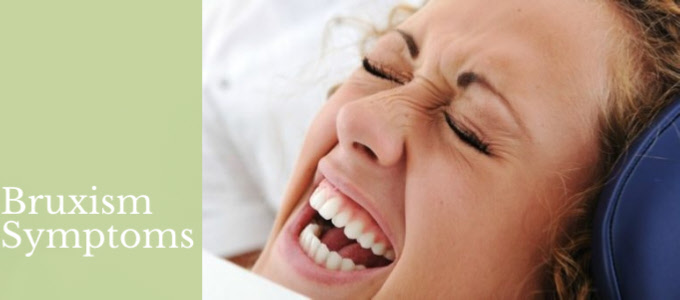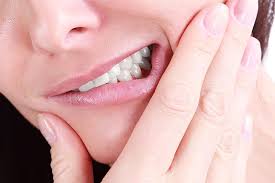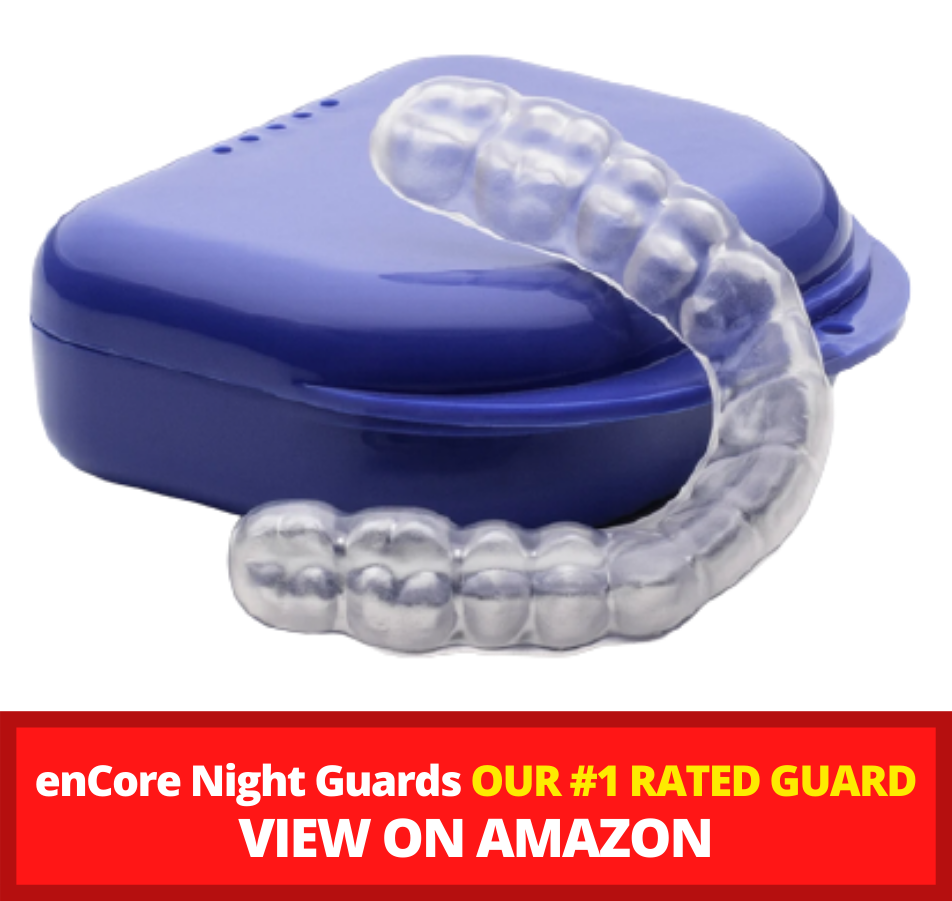Table of Contents

While teeth grinding may be common, it can also be painful. It can cause your teeth to wear down and soreness in the jaw. This is called Bruxism and it shouldn’t be ignored if it is something you do regularly. You may not realize it at first, but your partner is going to hear the sounds. You may wonder why you wake up with a sore jaw or other symptoms (1).
Sometimes, a person doesn’t recognize they have an issue with teeth grinding until their dentist points it out to them. This is because not everyone has symptoms to tune them into the fact something is amiss. Understanding the symptoms of Bruxism and taking action can help you feel better. It can help you protect your teeth and get a better night of sleep! If you grind them during the day you will need to consciously focus on it and changing the behavior.
Some experts believe a lack of certain vitamins in the body can increase the risk of someone grinding their teeth. It may be worth seeing if you or a child with this issue is getting enough of those vitamins. If not, changes to the diet along with dietary supplements may be a way to reduce the problem. These vitamins include:
- Calcium
- Magnesium
- Vitamin B5
Don’t Ignore the Issue

Discovering you grind your teeth isn’t the end of the world. However, it can create problems for you if the issue isn’t resolved. Children may do it due to a bad habit or out of anxiety. Some children outgrow it in time and others continue the process as they become adults. Some adults suddenly start to take part in teeth grinding.
There isn’t always a viable reason for it to start. Parents need to be patient with children and also talk to their dental provider. Adults need to do what they can to identify the problem and resolve it. There are actions to take on your own as well as those through your dentist.
Common Symptoms
For many with Bruxism, they find out they grind their teeth from others. If it happens during the day it could be a friend or family member commenting on it. A co-worker you spend plenty of time with may notice the habit too. If you only do it at night, your significant other may tell you about it because you interrupt their sleep. The grinding sounds can be hard for others to ignore!
Frequent headaches are common with Bruxism. Unfortunately, most people don’t make that link between the two issues. Once you take steps to stop the teeth grinding that can help alleviate most or all of the headaches. If it doesn’t make sure you look into that matter further.
Pain in the jaw or the teeth when you wake up in the morning is a telling sign of grinding your teeth. The pressure can be intense and create sore areas. Some people bite into their gums while sleeping because of it and wake up with dried blood or sore spots inside of the mouth. Dental problems including worn-down teeth at a young age can also indicate Bruxism.
Solutions for Daytime Teeth Grinding
Anxiety or stress are often causes for daytime teeth grinding to start. Try to identify sources of anxiety or stress and reduce them. If a child is going through such an experience, give them plenty of support and see if something is going on. There may be life changes or something with their peers that has caused anxiety or stress to increase for them. They are looking for a way to release it.
Some adults subconsciously grind their teeth during the day when they are concentrating. They may be working on a difficult project at work or tight deadlines. The intensity of such stress can help motivate them but it can also cause the Bruxism issue to get worse.
Awareness is the key to changing this habit while awake. Pay attention to triggers that indicate it is going to happen. Pay attention to your actions and immediately stop the teeth grinding when you realize you are doing it. Introduce some new options such as breathing techniques, chewing gum, taking a break from what you were doing.
For some individuals, talking to a professional helps them to control anxiety. It also helps them to break the habit of teeth grinding. Be patient as it can take time to find a solution that works well for you. Make sure you don’t slip back into old habits when you experience stressors.
Solutions for Nighttime Teeth Grinding
For the majority of people with Bruxism, the problem occurs at night. The design of their jaw and how their teeth line up may be causing it. If that is the situation, braces or aligners may be necessary to change that formation. An evaluation by a dentist can help determine if that would help.
Dental guards are a good way to prevent teeth grinding at night. You can buy them over the counter. They can be heated up in boiling water to fit your mouth correctly. They shouldn’t be uncomfortable when you wear them. Slip them in your mouth before you go to bed and take them out when you wake up. The guards prevent the teeth from being able to touch each other as you sleep.
For a better fit, your dentist can make you customized dental guards to fight teeth grinding. They create them by taking a mold of your teeth. They do cost more than those you buy at retail stores, but they can help you to end your problems with Bruxism.
Conclusion
While teeth grinding is normal, it can also cause pain and damage to your teeth. The sound of it can interrupt your sleep as well as annoy those around you. Take action on your own and with dental professionals to end Bruxism. The sooner you do so the less damage your teeth will take. It can be expensive to repair them once the damage has occurred.


